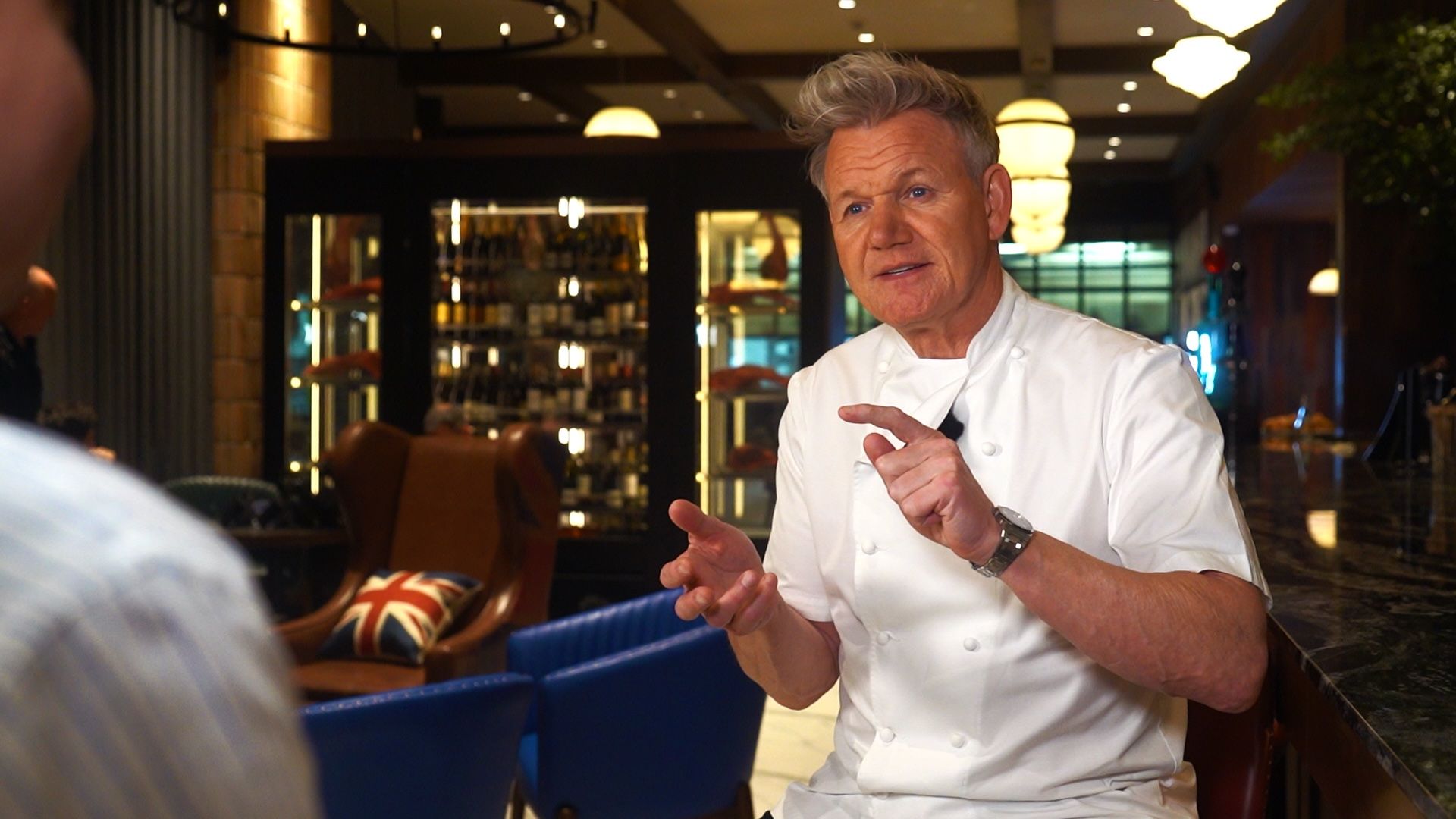FOODIES: Gordon Ramsay talks Filipino cuisine, comfort food, and global trends
The culinary icon shares his love for Filipino flavors, advice for aspiring chefs, and a glimpse into dining's future during an exclusive Manila Bulletin interview.

Calling Filipino cuisine the “Sleeping Beauty of Asia” for its humbleness and incredible diversity, renowned chef and restaurateur Gordon Ramsay said it now has its own identity to break into the international food scene.
In an exclusive interview with the Manila Bulletin on Monday, Jan. 20, the culinary titan shared his thoughts on Filipino food, global dining trends, and offered advice to aspiring chefs.
Ramsay’s enthusiasm and candid insights painted a vivid picture of his deep appreciation for the evolving culinary world.
On Filipino cuisine: "The Sleeping Beauty of Asia"
“Filipino cuisine has been on my radar for many years,” Gordon began. “Some of the best restaurants outside of Manila now are Filipino restaurants. It’s got this dynamic excitement to it.”
His respect for the complexity and heritage of Filipino food was evident as he elaborated on its unique characteristics. “The flavors—the sourness, the umami, the richness, the spice, the paste, the sweetness—it’s pretty incredible. There’s even Filipino chefs in New York chasing Michelin stars.”
He cited his recent experience at Serai, a Filipino restaurant in Melbourne, as a testament to the cuisine’s global potential. “We had one of the best dinners I’ve ever had. The restaurant was fully booked for six months, and even I had to give up my table after 60 minutes!” he recounted with a laugh. “What I didn’t finish, I took in the car and ate on the way home. That’s how good it was.”
When asked why Filipino food has yet to fully break into the international scene, Gordon likened it to a “Sleeping Beauty” waiting to awaken. “It now has its own identity that can stand as good as Vietnamese or Thai cuisine,” he asserted. “The Western world is waking up to its humbleness and its incredible diversity.”
Comfort food and culinary favorites
Despite his global stature, Gordon’s comfort food of choice remains humble. “I’ve had more variations of club sandwiches around the world than you’ll ever know,” he shared. He described his ideal recipe: “Sourdough bread drizzled with olive oil, kimchi mayonnaise, thinly sliced tomato, butter lettuce, roasted chicken thigh with chimichurri, and crispy pork belly. Turn the lights down, open the red wine—I’m happy.”
Gordon's love for Filipino desserts also came to light during the interview. “Halo-halo is super sweet and delicious. It reminds me of the rice pudding we made growing up with evaporated milk,” he said. “I have a Filipino sweet tooth. I’m definitely at home here.”
He also spoke fondly of Sunday roasts, a dish that reminds him of his childhood. “There’s something unique about roasting a beautiful ribeye or strip loin with roasted vegetables, Yorkshire puddings, and a touch of gravy,” he shared. “And the trifle—we didn’t have individual portions; it was one big bowl that we all shared.”
Global dining trends: Back to basics
Looking ahead to 2025, Gordon emphasized a return to simplicity in global dining. “Less fussy dining, more honest food,” he said. “Say goodbye to the foams and the jellies. Welcome back the real DNA of flavor profiles.”
He underscored the importance of seasonality and ingredient-driven dishes. “The better the ingredient, the less you need to do to it,” he explained. Gordon believes diners today crave authenticity and connection with chefs, especially after the lessons learned during the pandemic.
“Everyone became a chef during COVID, cooking breakfast, lunch, and dinner at home,” he said. “People now appreciate the value of good ingredients and seasonal dishes. They want menus that change throughout the year.”
Advice to aspiring Filipino chefs
His message to budding chefs was clear: “Master your craft. Don’t tiptoe over it. Bed yourself into a good kitchen for two or three years, and then learn outside of your shifts. Save up, go eat, and discover new ideas.”
He encouraged young chefs to embrace challenges. “Don’t run away from the difficult things. Attack the difficult things. It makes you a much better chef,” he said. “Get comfortable being uncomfortable. Travel, learn a second language, and immerse yourself in another culture.”
Gordon highlighted the importance of curiosity and continuous learning. “There is so much exciting information on the internet today. Study, read, and feed your mind,” he advised. “It’s like studying for a degree in culinary arts. Use every resource available to push yourself forward.”
With his experience, Ramsay acknowledged the burgeoning talent in the Philippines. “There’s a wealth of talent here, from 17-year-olds to 32-year-olds, who are the future of Filipino cuisine,” he said. “The culinary world is theirs to take.”
Filipino chefs on the global stage
Ramsay’s travels have brought him into contact with Filipino chefs across the globe. “From the East Coast to Europe, Filipino chefs are a prominent force,” he said. “They’re hungry to develop and eager to navigate their palates around the globe while staying true to their heritage.”
He recalled how one of his kitchens incorporated Filipino ingredients, such as lapu-lapu for fish and chips. “That fish is unique, very unique. I’d love to see more Filipino ingredients celebrated internationally,” he said.
Ramsay also expressed his hope to bring his adventurous culinary show "Uncharted" to the Philippines. “There’s an incredible treasure chest of ingredients here that I’d love to explore,” he said.
Looking to the future
As Gordon's time in Manila concluded, it was evident that his admiration for Filipino food and chefs ran deep. “Filipino cuisine deserves to break out,” he affirmed. “You have a beautiful heritage, incredible talent, and unique flavors that the world is just beginning to discover.”
Ramsay’s final piece of advice? “Set the bar high. Innovate. The future is bright, and the culinary world is watching.”
And with champions like Ramsay recognizing its potential, the world may soon see Filipino food take its rightful place on the global stage.